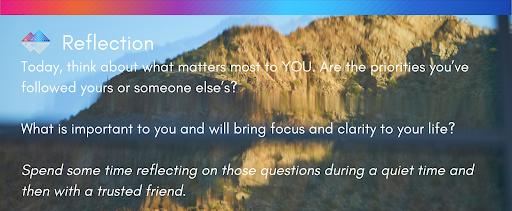
Priorities and How They Matter
What are your priorities? Do they matter to you? I’ll never forget a watershed question my mentor asked me once. He said, “Jerry, are you treating your wife better than your best client?”
Was it time for a course adjustment? We have great clients, but wow, this made me reflect on the fact that I need to be just as excited to talk to my wife, kids, and extended family. From that moment on, I chose to make my family a top priority. For example, when we go to dinner with friends or family, I silence my cell phone and give it to my wife, Carol. When we vacation, I do not answer my business phone. There is no downside to this decision.
Many leaders aren’t aware of their top priorities because they live their life by default and not by design. They become too consumed with comparing themselves and going along with the crowd that there are no boundaries in place when demands come their way.
We’ll put fences around our houses but won’t take the time to put a fence around our lives.
It doesn’t matter how amazing you are. A life without priorities and boundaries will catch up to you, whether through a financial failure or a health issue. It would be best if you had business, personal, community, and self-improvement priorities.
When setting your priorities, ask yourself, is the way I’m living my life today getting me to where I want to be tomorrow?
When life is chaotic and urgencies come, bring your priorities on the journey with you. Because my family is the most important thing to me, I included them as much as possible. One time on a rainy Easter Sunday, water started pouring through the roof of my client’s rental house, and the water began to get on the electronics in his home. What did I do? I didn’t want to interrupt my team on holiday. Instead, I grabbed our two sons, and they helped. We covered that roof together. If your family is important to you, take your family along your journey. Take them to where you want to be tomorrow.
Don’t isolate yourself when you’re stressed. Bring what’s important with you in crisis; it will be a valuable lesson for everyone involved. People always remember what you do for them in a crisis. Why?
People observe what we do far more than what we say.

Choose to live based on your priorities. Whether scheduling everything you do on the calendar or shutting your phone off for a certain time, do what you need to do to live the life that will take you where you want to go. This decision will ultimately allow you to serve others more intentionally.
Seeking to live in His reflection,
Jerry
